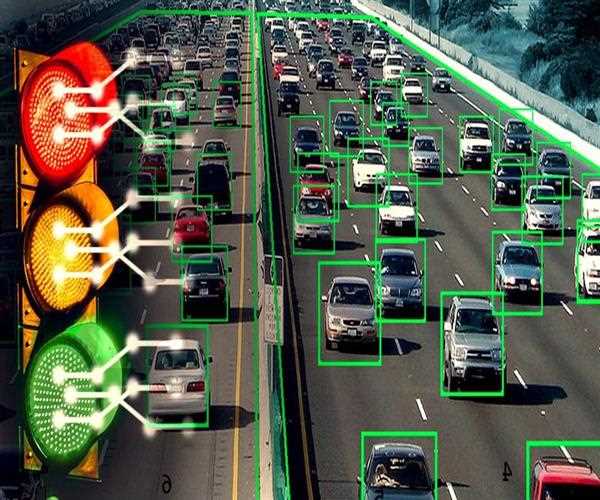
22-Feb-2023
How Bengaluru can manage traffic by using Artificial Intelligence
As you know, Bengaluru is the IT hub of India and one of the fastest-growing cities in the world. It is also one of the most congested cities, plagued with traffic woes.
The sheer volume of vehicles on its narrow roads often leads to chaotic scenes which are a nightmare for citizens.
Fortunately, technology may offer some reprieve from this problem.
Artificial Intelligence (AI) can be used to efficiently manage Bengaluru’s traffic and reduce congestion, making it easier for people to travel through the city without having to worry about getting stuck in traffic jams.
The city population has over 12 million people.
Traffic jams are a common sight, and the city’s roads are often clogged with vehicles
In recent years, the Bengaluru government has implemented a number of measures to try and improve the city’s traffic situation. These have included building flyovers and widening roads. However, these measures have only had limited success.
But the turning point came into existence
In the Karnataka budget that Chief Minister Basavaraj Bommai presented on Friday, one of the measures proposed to address Bengaluru's traffic issues is the creation of elevated roads, the use of artificial intelligence to manage traffic signals, and the development of junctions with a lot of traffic.
In addition, the chief minister in the budget announced that Rs 300 crore will be allocated for the reconstruction of roads in 110 villages within the Bruhat Bengaluru Mahanagara Palike (BBMP) limit that are in need of repair.
The proposal should develop 75 important junctions with high traffic congestion at a cost of Rs 150 crore in order to reduce traffic congestion in the city of Bengaluru
Some of the important facts that he claims are:
- By Implementing Seamless Signalling, traffic congestion will be reduced by utilizing AI to manage traffic signals. He added that by integrating it with the Sub-Urban Railway Corporation's rail networking, traffic congestion will also be reduced by building a five-kilometer elevated road between the Tin factory and Medahalli at a cost of Rs 350 crore, as well as an integrated flyover between Yeshwanthpur Railway Station and Mathikere and BEL Road.
- The AI system uses sensors to collect data about traffic flow, weather conditions, and road conditions. This data is then analyzed to predict traffic patterns. The predictions are used to adjust traffic signals, route vehicles, and provide information to drivers.
- The system will help reduce travel times by more than 20 percent and has improved the city's overall efficiency. In addition, the system has also helped improve air quality by reducing emissions from idling vehicles.
- The white coating of 120 kilometers of arterial roads in Bengaluru will cost Rs 1,000 crore, and the construction of 300 kilometers of arterial and sub-arterial roads in the city will cost Rs 450 crore.
- A project with the assistance of the World Bank and a cost of Rs 3,000 crore will be carried out to control floods and mitigate the negative effects of climate change in Bengaluru.
- Under this plan, sluice gates will be installed at each tank to control the flood situation. It will assist in regulating the water's velocity and volume of flow. pointing out that compactors and tippers designed to collect both dry and wet waste from the same vehicle will be put into operation.
- By requiring the large producers of waste, such as commercial complexes, hospitals, and hotels, to process the waste on their own, local waste processing will be encouraged, he stated. Additionally, at a cost of Rs 35 crore, fencing, erecting boards, and GPS software surveillance will be implemented to safeguard BBMP property and prevent encroachment.
The Traffic management system has been credited with reducing travel times by up to 30% in some areas of the city. However, it is still in its early stages, and further improvements are needed. In particular, the system relies heavily on data from CCTV cameras, which can be unreliable in low-light conditions or when there is heavy rain or fog. Bengaluru also needs to increase the number of sensors and cameras if it wants to cover all of its roads.
Despite these challenges, AI holds great promise for improving the management of traffic in Bengaluru. As the system continues to develop, it is likely that it will become increasingly effective
This way, Bengaluru can lead in using AI to tackle increased urbanization and make life easier for everyone who lives or works there

SEO and Content Writer
I am Drishan vig. I used to write blogs, articles, and stories in a way that entices the audience. I assure you that consistency, style, and tone must be met while writing the content. Working with the clients like bfc, varthana, ITC hotels, indusind, mumpa, mollydolly etc. has made me realized that writing content is not enough but doing seo is the first thing for it.
Join Our Newsletter
Subscribe to our newsletter to receive emails about new views posts, releases and updates.
Copyright 2010 - 2026 MindStick Software Pvt. Ltd. All Rights Reserved Privacy Policy | Terms & Conditions | Cookie Policy